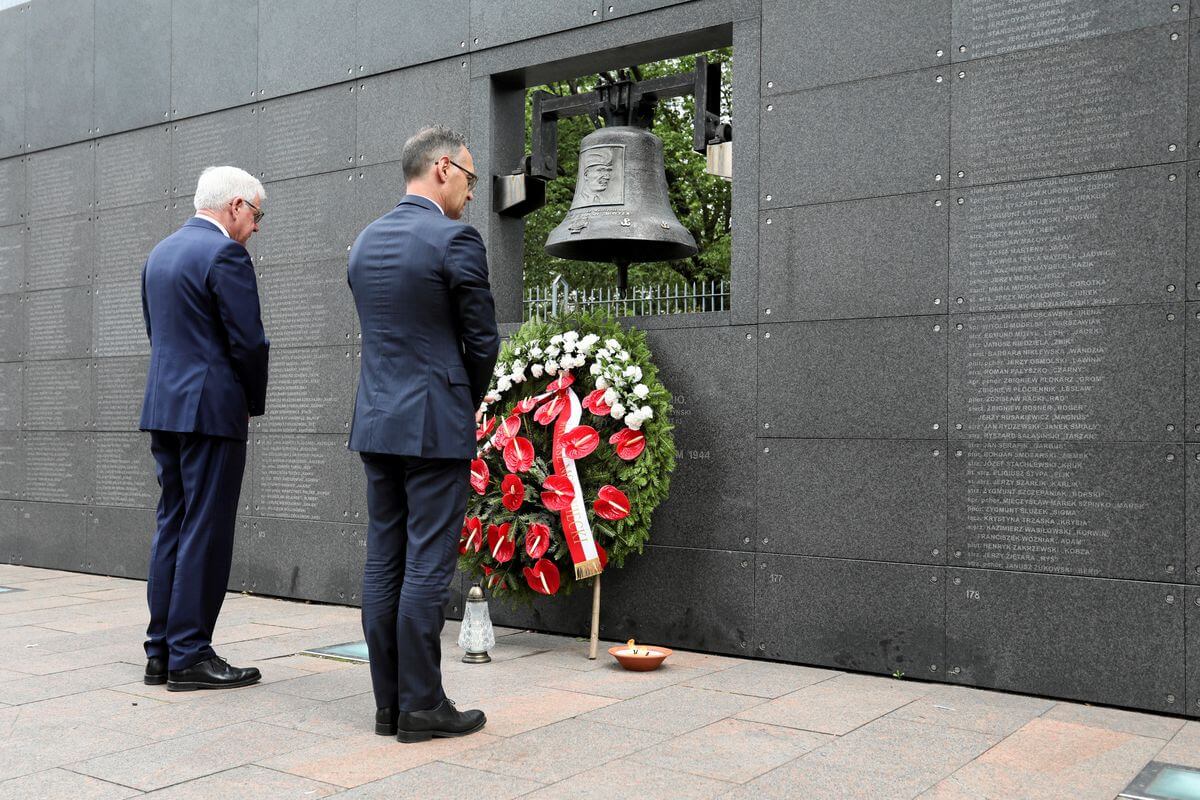On Tuesday, Poland sent a request to the United Nations (UN) to intervene after Germany rejected its World War Two (WWII) reparations claims.
POLAND SEEKS $1.3 TRILLION IN WWII REPARATIONS FROM GERMANY
In September 2022, on the 83rd anniversary of Nazi Germany’s invasion of Poland during WWII, Polish Deputy PM and ruling Law and Justice (PiS) party chairman Jarosław Kaczyński demanded $1.3 trillion in reparations from Germany.
The position of the @GermanyDiplo on our note is false. The case of unsettled compensation for Poland for the effects of WWII remains open; morally, politically, and legally. We have an international campaign ahead of us, but I am sure that we will win for both Poland and Poles!
— Arkadiusz Mularczyk (@arekmularczyk) January 3, 2023
Poland also released a parliamentary report detailing the losses incurred during the six-year occupation, including the two million Poles deported to Germany for forced labour, 200,000 children deported to Germany, and compensation for the nearly six million deaths, of which 21% were children under the age of 10.
In response to Poland’s demand in September, a German Foreign Office spokesperson had told Reuters that Germany’s “position is unchanged: the reparations question is closed.” “Poland renounced further reparations a long time ago, in 1953, and has since repeatedly confirmed this.”
In 1953, the Soviet Union convinced Poland to not seek damages from Germany to protect its communist satellite East Germany. However, Polish Deputy Minister of Foreign Affairs Arkadiusz Mularczyk claimed that no official document regarding this has been found to date, while others in Poland consider it to be an invalid argument since Warsaw was under a pro-Soviet regime at the time.
In a statement issued on Tuesday, the MFA in Warsaw announced that the German MFA had provided a response on December 28, 2022 to the Polish MFA's note of October 3, 2022.
— Gurbaksh Singh Chahal (@gchahal) January 3, 2023
The statement said that "the note was delivered to the Polish MFA on January 3, 2023."
GERMANY’S OFFICIAL REPLY
The Polish Foreign Ministry stated that its German counterpart sent a diplomatic note regarding its formal 3 October request on Tuesday, saying, “According to the German government, the matter of reparations and compensation for war losses remains closed, and the German government does not intend to enter into negotiations on this matter.”
REACTIONS
In an interview with the Polish Press Agency on Tuesday, Mularczyk asserted, “This answer, to sum it up, shows an absolutely disrespectful attitude towards Poland and Poles,” further declaring, “Germany does not pursue a friendly policy towards Poland, they want to build their sphere of influence here and treat Poland as a vassal state.”
Similarly, Polish Minister of European Affairs Szymon Szynkowski vel Sek noted, “Certainly, this is not the end of the matter,” adding that “the time needed to effectively address this issue is calculated not in months, but in years, and perhaps even in generations.” He further revealed that “action on this issue is planned in a far broader perspective” as opposed to simply corresponding with the German government.
POLAND APPEALS TO THE UN
In a press release, the Polish Foreign Ministry revealed that Poland sent a letter addressed to UN Secretary-General António Guterres, UN General Assembly President Csaba Kőrösi, UN Human Rights Council President Václav Bálek, and UN High Commissioner for Human Rights Volker Türk to “establish cooperation and support in the matter of obtaining compensation” for losses caused by German aggression and occupation in Poland between 1939-1945.
💬 Deputy FM @arekmularczyk during today's press conference on Poland's request to United Nations Secretary-General @antonioguterres and 🇺🇳 representatives to support the efforts to compensate for losses caused by German aggression and occupation in 1939-1945 pic.twitter.com/L78SWt4KaF
— Ministry of Foreign Affairs 🇵🇱 (@PolandMFA) January 3, 2023
During a press conference on Tuesday, Mularczyk affirmed, “We hope to launch a debate at the UN forum in order to draw the attention of the international community to the problem that has not been resolved since the end of the war,” pointing out that Germany “did not systematically compensate for these losses.”
“Victims of war and their heirs wishing to pursue claims against the German state have no legal avenue as a result of the immunity from jurisdiction invoked by Germany,” he added, asserting that the UN is the “first universal interstate international organisation […] whose statute provides for extensive powers in the economic, social, and human rights spheres.”

